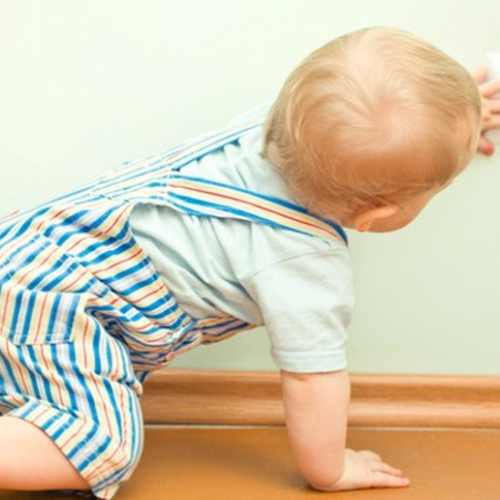The impact of parental self-esteem on children

Mirna Hamze, PYP Counsellor at GEMS World Academy, explains the vital role of parental self-esteem in shaping children’s confidence and well-being.
Self-esteem is how we perceive ourselves; it’s how we evaluate our worth, values and abilities. To be successful in life, it’s essential for everyone, regardless of age, to possess a healthy level of self-esteem.
Children with high self-esteem believe in themselves. They are more likely to achieve high results in life, make their own decisions and confront challenges they face with confidence. Parents and educators want children to accept when they make mistakes and learn from them, rather than blame themselves, feel ashamed or compare themselves to others. Children who possess high levels of self-esteem tend to experience greater satisfaction with themselves, contributing to their overall happiness.
That’s why self-esteem is one of the most important attributes – so much so that the degree to which people succeed in life is heavily influenced by their self-esteem.
The role of parents
Parents who have a high sense of self-esteem feel and act confidently and are more likely to be optimistic and pass that attitude to their children. Being brought up in an environment where praise is particularly valued often instils higher levels of self-esteem in an individual. When the person then becomes a parent, they are more likely to have developed a natural tendency to provide their child with the love and encouragement needed to flourish.
On the other hand, adults who experienced a high degree of criticism as children tend to, in turn, criticise themselves or set unreasonably high expectations of themselves. Parents with such tendencies are more likely to find it acceptable to comment and be quick to criticise their children for their mistakes. Instead of modelling or teaching their children how to work on making things better next time, the parent may use negative words to judge their children’s behaviour, while at the same time paying less attention to their accomplishments. Without deliberately making an effort to do otherwise, individuals may unconsciously adopt and continue the negative habits they learned from their own parents.
The way we address ourselves as adults, especially in front of our children, greatly impacts their self-esteem. Parents’ insecurities end up becoming their children’s insecurities as they grow up. When we as parents show mostly our weaknesses, speak negatively to ourselves, and frequently exhibit negative habits, there is a higher possibility that our children will pick up on those behaviours, which will eventually shape who they become. Making negative comments about ourselves by criticising our appearance, abilities, intelligence or personality might have an impact on how our children talk to themselves and feel and view themselves.
Children are born free of negative or positive self-talk; they develop this as they start interacting with others, especially their parents. Children continuously observe us and pick up parenting tips from what we do and don’t do as parents. For example, if a parent avoids trying new things or avoids challenges because of poor self-esteem, their child may grow up being hesitant to take on new tasks and challenges in life.
As Anita Cleare, parenting expert, writer, coach and co-founder of the Positive Parenting Project, details in her blog entitled How parents’ self-esteem affects children, there are various ways parents can boost their own self-esteem:
Set reasonable goals for yourself
Are you setting yourself unrealistically high standards? On extremely busy days, when we don’t get the chance to spend much time with our kids, we may put ourselves under pressure to try to ensure family time is perfect and argument-free. However, chances are that’s not feasible, because we should be focusing on disciplining and resolving conflicts whenever we are around our children. When faced with unreasonable targets for us as parents as well as our kids, we frequently end up blaming ourselves, which lowers our self-esteem.
Look at the bright side
It’s easy to fall into the routine of focusing on what we haven’t accomplished. Yet when we dwell on mistakes, they may appear exaggerated in our minds. Making a deliberate effort to remind ourselves of what we are getting right is an easy way for parents to improve their self-esteem. So, take time at the end of the day to reflect on the successful and joyous moments. Focus on your strengths rather than your weaknesses.
Use positive self-talk
After a long day, it’s easy for parents to think of what went wrong and begin blaming themselves, focusing on what they should have done. Instead, speak to yourself positively: we all learn from our experiences and can work on improving them in the future. Try using statements like “it would be a good idea to try this next time” or “I would like to do this more often” rather than “I shouldn’t have done that”, etc. Acknowledge and recognise what you are doing well – even the smallest accomplishments – and encourage yourself.
Resist the urge to compete with others
As parents we need to keep in mind that what other parents post on social media about their families is not always true. All parents go through ups and downs while raising their children. A faultless life does not exist! That’s why parents should avoid comparing both themselves and their children with others.
Implement a self-care routine
It’s true that we have a lot on our to-do lists as parents during the day, but self-care cannot be kept at the bottom of our lists. Regardless of how occupied you may be, find the time to practice something you love that makes you feel more relaxed and positive throughout the day. Begin with easy, simple self-care practices. Those are crucial reminders that you matter and deserve a self-care.
Image Credit: GEMS World Academy











Comments